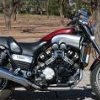Effective Micro-organisms
-
Recently Browsing 0 members
- No registered users viewing this page.
-
Topics
-
-
Popular Contributors
-
-
Latest posts...
-
10
What things bore and annoy you most?
This and all other women, to be frank -
10
What things bore and annoy you most?
You're deliberately opening yourself up to the reply, "Posts like this," aren't you? -
18
I take care family. Are bargirls really good mothers?
How true...........🤔 -
31
Kennedy Ousts CDC Advisory Panel in Controversial Shakeup
Ohh dear what short "memories" some people have. -
8
Report Cambodia Targets Thai District with Long-Range Artillery
Have these "Khmer Rouge" people gone absolutely bananas??? 😫😫 -
238
Will there ever be a safe vaccine?
If i didnt have kids i dont see the point of living anymore. No need to live for myself anymore ive already done everything i wanted to.
-
-
Popular in The Pub




.thumb.jpeg.d2d19a66404642fd9ff62d6262fd153e.jpeg)






Recommended Posts
Create an account or sign in to comment
You need to be a member in order to leave a comment
Create an account
Sign up for a new account in our community. It's easy!
Register a new accountSign in
Already have an account? Sign in here.
Sign In Now